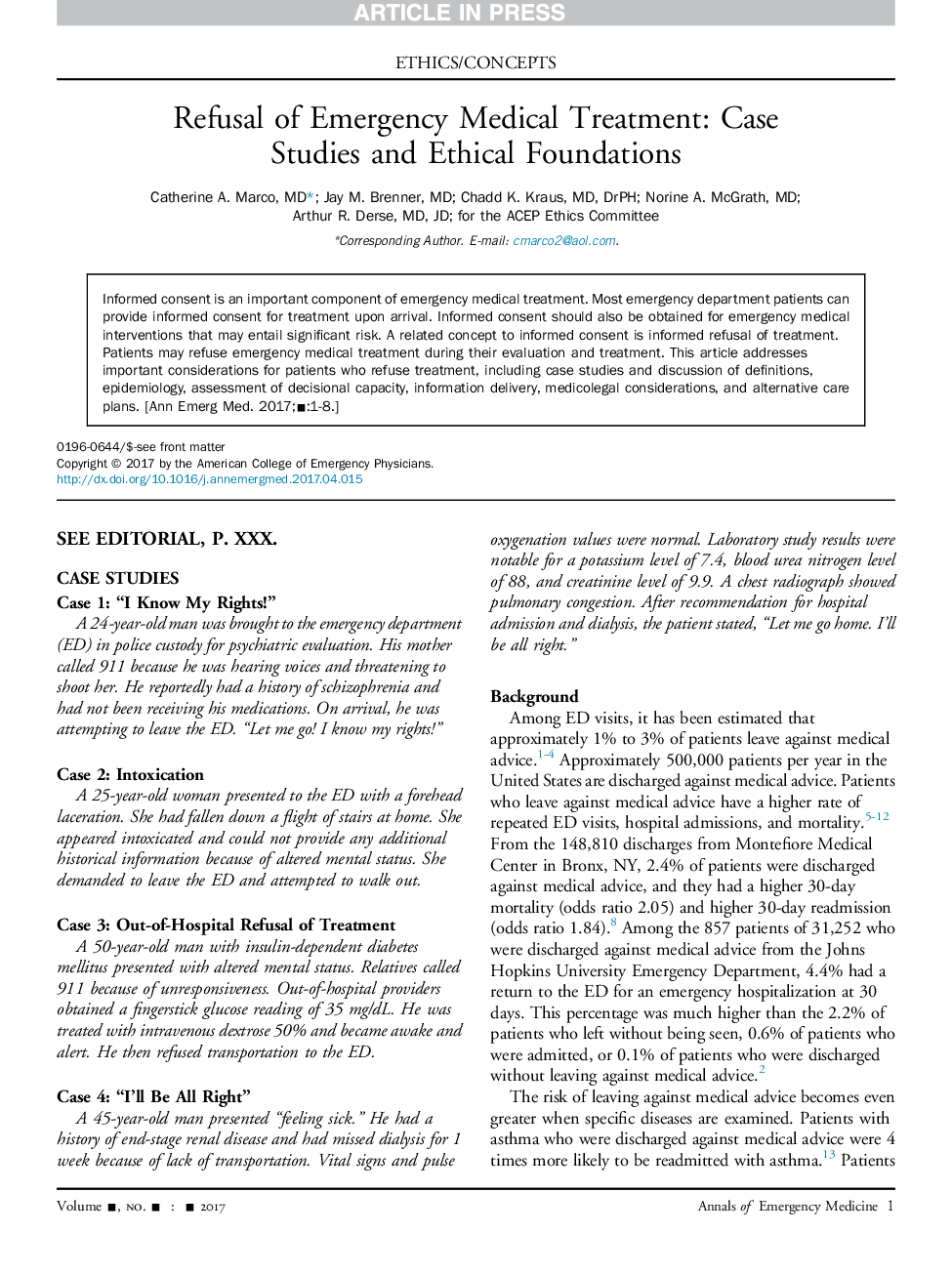| Article ID | Journal | Published Year | Pages | File Type |
|---|---|---|---|---|
| 5651964 | Annals of Emergency Medicine | 2017 | 8 Pages |
Abstract
Informed consent is an important component of emergency medical treatment. Most emergency department patients can provide informed consent for treatment upon arrival. Informed consent should also be obtained for emergency medical interventions that may entail significant risk. A related concept to informed consent is informed refusal of treatment. Patients may refuse emergency medical treatment during their evaluation and treatment. This article addresses important considerations for patients who refuse treatment, including case studies and discussion of definitions, epidemiology, assessment of decisional capacity, information delivery, medicolegal considerations, and alternative care plans.
Related Topics
Health Sciences
Medicine and Dentistry
Emergency Medicine
Authors
Catherine A. MD, Jay M. MD, Chadd K. MD, DrPH, Norine A. MD, Arthur R. MD, JD, ACEP Ethics Committee ACEP Ethics Committee,
